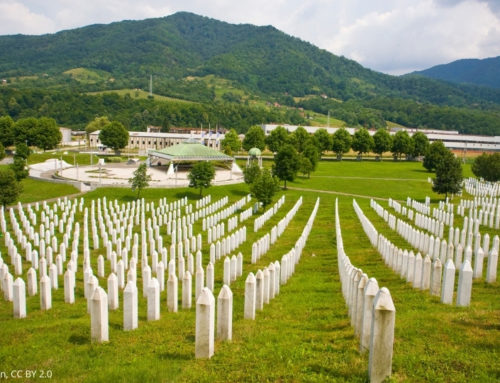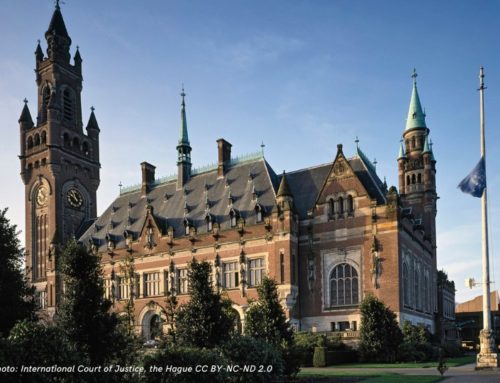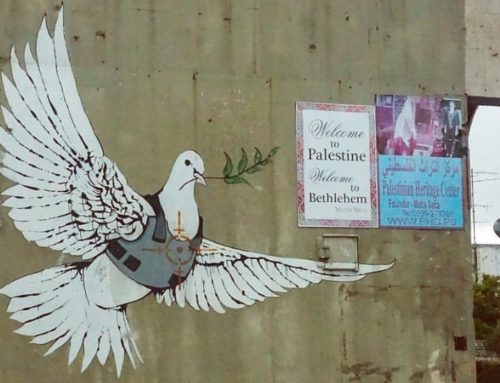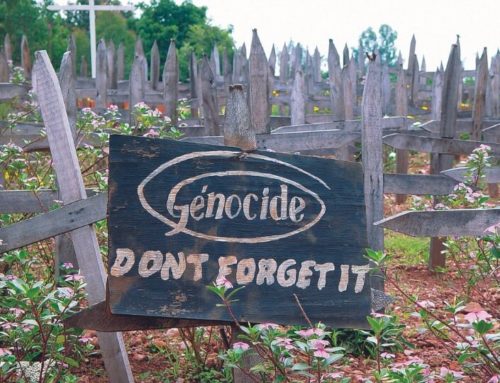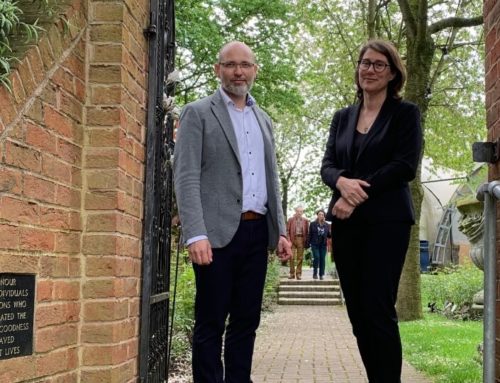On 26 September 2015, renewed violence erupted in the Central African Republic involving clashes between Anti-Balaka and Seleka, and rival militia attacks on both Muslim and Christian civilians. Evacuated to Rwanda a week later, the Aegis Trust’s representative in CAR, Alain Lazaret, is an eyewitness. He was living near PK5 in Bangui, in the heart of the violence. The following is edited from a short interview with him, conducted on camera in Kigali.
It’s one thing to see somebody else’s country being destroyed, maybe you watch it on TV. But if it is your own country, and this you are not watching it on TV, you are seeing it yourself, live, there is no word to describe that – it’s, it’s just – there is no word.
People are burnt alive in their houses; women, pregnant women, having their throat cut; this is just crazy. Kids, 8, 10 years old, being killed. What have they done? This is just blind violence. Muslims and Christians are being killed on both sides, and there is total chaos.
The feeling of the population, they say they are abandoned. Abandoned by their government, abandoned by the international community, abandoned by the United Nations. So it’s a feeling of deep, deep despair. Things are spinning out of control. And if the international community doesn’t act very quickly, it may be something else in the month or weeks to come.
To stop this crisis, the first and foremost thing to be done is just to help those different fighting groups, meaning anti-balakas and selekas, and their supporters, they need to go through peace education about forgiveness, about reconciliation, about empathy, about critical thinking and personal responsibility.
And then the second thing, the role of the UN there should be clearly defined, and also the population should be protected. If it is the UN troops that are there, what are they for? Because they should have done something to stop the killing. But instead most of them, they pulled out of the places and the zones where people were being killed.
As ordinary people, we should raise our voice and speak. We should speak to the politicians, that they just stop manipulating people. Because those young people are the future of the country. They cannot just lead them, through manipulation, to kill people and destroy the country.
What Aegis should do about it is first of all giving what has worked best here in Rwanda. Which is peace education. We need that. We need it. I mean, I could say, in the first three weeks, from now, we should start doing something, because we have young people from Christian community, I mean Catholic, Protestant, and also Muslims, they are ready, and they are all just waiting.
If we say OK, you can go, and we give them the necessary tools, they should go into the different communities in Bangui and start working with the different communities just to try to disarm the minds and the hearts.
This is the first thing to do. Because if you don’t disarm the heart and the mind, and you disarm only the arms that carry the weapons, those arms will go and take weapons again, because the hearts are not disarmed. But if we disarm the mind and the hearts, then it will be easy for the UN troops to disarm, to take weapons away from people, because they don’t – they will not need to use it anymore to kill people. So this is the first thing Aegis should do.
Yesterday, I had a call from a Muslim friend. He called me and said, “We hope you are coming back to CAR with good news. By good news, I mean Aegis will be coming in to help us teach peace education into our different communities because the elections are ahead, we don’t know what is going to happen.” If we can have this before the election, it will be a great, great help for CAR.
RELATED CONTENT
Taking lessons from Rwanda to countries in crisis
Aegis invited to help build peace in CAR
Aegis at the Bangui Peace Forum
SUPPORT AEGIS’ WORK IN CAR

